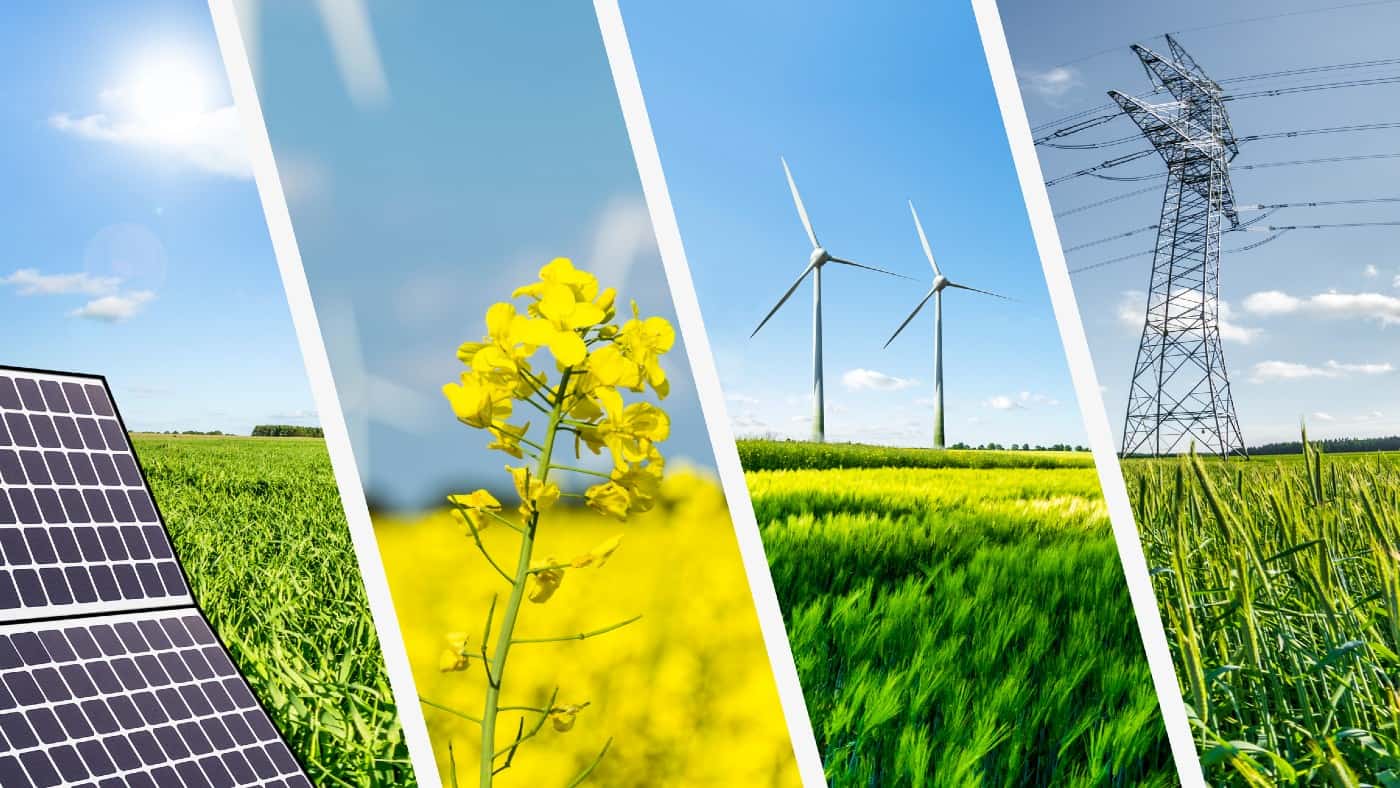According to the climate change select committee, renewable energy sources are derived from natural processes and replenished more rapidly than expended. Solar, wind, and hydropower are renewable energy sources. Renewable energy stocks invest in and operate projects that harness the power of the sun, wind, and flowing water to generate electricity.
I will look at the investment case for renewable energy stocks, but first, a brief aside. Biofuels are sometimes included under the umbrella of renewables. Biofuels release carbon dioxide when burnt, as do fossil fuels. But the carbon in biofuels has been pulled out of the atmosphere as CO2 by plants as they grow. The carbon in fossil fuels has been locked away for millennia. Burning them does add CO2 to the atmosphere that was not there recently. I think of biofuels as a low-carbon energy source, like nuclear power.
Renewables are taking a bigger slice of the pie
In the UK, wind, solar, and hydropower accounted for 0.26%, 0.01%, and 1.07% of total electricity production. In 2021, solar accounted for 4.31%, wind for 21.49%, and hydropower for 1.67%. That is a huge change, particularly for wind power. That kind of growth, if it continues, should be good for renewable energy stocks.
| Electricity production source, % of the UK’s energy mix | 2001 | 2011 | 2021 |
| Wind | 0.3% | 4.4% | 21.5% |
| Solar | 0.0% | 0.1% | 4.1% |
| Hydropower | 1.1% | 1.6% | 1.7% |
| Other low-carbon, including biofuels | 1.2% | 3.7% | 13.3% |
| Nuclear | 23.8% | 19.0% | 15.3% |
Although nuclear has declined as a share of the energy mix over the 20 years since 2001, other low-carbon sources like biofuels grew from 1.2% to 13.3% over those two decades. Given this performance, I won’t bash a renewable energy stock if it makes ventures into biofuels.
Peak power
I do not want a growing slice of a shrinking pie. This surprised me, but UK electricity generation, measured in gigawatt hours (GWh), peaked in 2005, according to data from the Department for Business, Energy & Industrial Strategy.
I have not been able to find a definitive answer as to why this happened. Perhaps it was energy-efficient appliances and lightbulbs. Maybe it’s deindustrialisation. I would like to know why because that would let me predict whether the forces driving the trend will reverse.
However, I can think of a few things that should mean electricity generation is not in terminal decline. An extra generating capacity of five additional Hinkley point nuclear power stations, or 90,000 new wind turbines, has been quoted to power the plans to have an entirely electric vehicle fleet in the UK. That’s a lot of growth in electricity generating capacity. And given the government’s target of a net-zero economy by 2050, the share of renewable energy in the mix will have to increase.
Renewable energy stocks
I am confident that the UK renewable energy industry is growing. I like to invest in growing industries. Therefore, I should consider investing in UK renewable energy stocks in my portfolio. However, the industry is still relatively new and has had to be supported to get going. Hence, I will look at investment trusts that fund various projects instead of single company stocks to manage risk. Here are some examples:
- Greencoat UK Wind
- Greencoat Renewables
- Foresight Solar Fund
- The Renewables Infrastructure Group
- JLEN Environmental Assets Group
Investing in big energy companies like SSE and Centrica is also possible. These are growing their renewable energy businesses. But they are also transitioning away from fossil fuel burning, and the switch could be messy.






